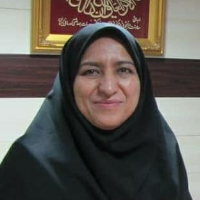The Effect of the Empowerment Program on the Chronic Sorrow of the Parents of Premature Newborn in Neonatal Intensive Care Units
Sorrow is a natural response to adverse events such as loss and birth of premature or abnormal neonates, which increases the risk of chronic physical diseases, substance abuse, and suicide if prolonged. In addition, sorrow decreases the quality of life of individuals, causing variable degrees of disability in individual and social functions. The components of chronic sorrow in the parents of premature neonates include premature birth, developmental disabilities, Down syndrome, neural tube defects (e.g., meningococcus), and chronic diseases (e.g., cancer). The parents of these neonates experience variable degrees of chronic sorrow, which in turn makes it difficult to care for and interact with the newborn. The birth of a premature neonate is the main challenge in postpartum care. In general, approximately 13 million births lead to premature birth each year. Iran has one of the highest prevalence rates of premature birth across the world, where 5,000 neonates are born daily, 12% of whom are underweight and 10-15% are born premature before 37 weeks of gestation. The birth of a newborn that needs special care causes psychologically special and shocking conditions for the parents, preventing the fulfillment of their true role as a parent. Sorrow occurs when parents find out that their newborn is chr('39')incompletechr('39'). Sorrow encompasses both internal phenomena (e.g., thoughts and feelings) and external phenomena in the form of behaviors related to sorrow (e.g., sadness and crying). One of the main nursing interventions in this regard involves diminishing the problems of the parents whose newborn is hospitalized in the intensive care unit through their empowerment by providing the required knowledge for the better care of admitted premature neonates, which has been highlighted within the context of family-oriented care to increase the quality of life of the neonate and families. In general, the implementation of proper nursing interventions could lead to positive outcomes for parents, reducing issues such as grief, stress, changed parental roles as a major nursing measure for diminishing the problems of the parents whose neonates are admitted to the neonatal intensive care unit. The empowerment of parents occurs by providing the necessary conditions for the interaction and participation of parents in the care of premature neonates. The creating opportunities for parent empowerment (COPE) was designed by Melnyk et al. in 2001 for the parents of premature infants. COPE is a four-stage educational-behavioral intervention based on the self-regulatory and control theories. In addition to the mental support of parents, this program provides the necessary information regarding the complexion and behaviors of premature infants, parental roles, conditions of the intensive care unit, and proper care of the neonates. The present study aimed to assess the effects of the COPE on the chronic sorrow of the parents of the premature neonates admitted to the neonatal intensive care unit (NICU).
This non-randomized clinical trial was conducted with a control group after the approval of the research plan and obtaining the required permit from the Ethics Committee and an introduction letter from Iran University of Medical Sciences at NICUs of Rasoul Akram and Ali Asghar hospitals in Tehran, Iran. Based on the inclusion criteria, 68 parents with premature infants admitted to the NICU were selected via convenience sampling. The stratification of the subjects to two groups was based on a time framework. Initially, the control group was samples, followed by the sampling of the intervention group. Data were collected using a demographic questionnaire and Kendall chronic sorrow instrument with 18 items scored based on a Likert scale, which were collected by the subjects in both groups. In the intervention group, the COPE program (four-stage educational-behavioral intervention) was carried out, and the control group received the routine care of the ward. The trainings and meetings with the parents were performed in groups of 2-4, including the mother and father, in the conference room of the ward with the permission of the head nurse by the researcher and the co-researcher. One month after the launching of the study, the questionnaires were completed again by the subjects via WhatsApp social network. Data analysis was performed in SPSS version 16 using descriptive statistics (frequency distribution tables and numerical indices), followed by inferential statistics using Chi-square, Fisherchr('39')s exact test, independent t-test, and paired t-test for the comparison of the study groups.
No significant differences were observed between the intervention and control groups in terms of age, education level, place of residence, length of the neonatechr('39')s admission, gender of the neonates, and mode of delivery between the intervention and control groups, and the groups were homogenous in this regard at the significance level of 0.05. In addition, the results of independent t-test showed no significant difference between the intervention and control groups in terms of the score of chronic sorrow (P>0.05). After the intervention, the mean score of chronic sorrow in the control and intervention groups was 43.11±8.38 and 32.85±5.45, respectively, which indicated a significant difference in this regard (P<0.001). This finding indicated the effectiveness of the COPE program in decreasing the chronic sorrow of the parents of the premature infants admitted to the NICU.
According to the results, the symptoms of sorrow appeared in the parents in the intervention and control groups upon the admission of the premature neonates to the NICU. Therefore, the parents whose premature infants are admitted to the NICU require proper examination and treatment for the symptoms of sorrow. Our findings confirmed the effectiveness of the COPE program in the alleviation of the sorrow of the parents whose premature neonates were admitted to the NICU. Therefore, it is recommended that this program be implemented as an effective and cost-efficient strategy in NICUs. Furthermore, the use of audio-visual training programs along with routine treatments could positively influence the care of premature infants and reduce the psychological effects on care on the parents. Owing to technological advancement, the easy application of such educational programs could maintain the independence of families and increase the knowledge interaction of parents in the care of the newborn, while decreasing their stress and sorrow.
- حق عضویت دریافتی صرف حمایت از نشریات عضو و نگهداری، تکمیل و توسعه مگیران میشود.
- پرداخت حق اشتراک و دانلود مقالات اجازه بازنشر آن در سایر رسانههای چاپی و دیجیتال را به کاربر نمیدهد.



